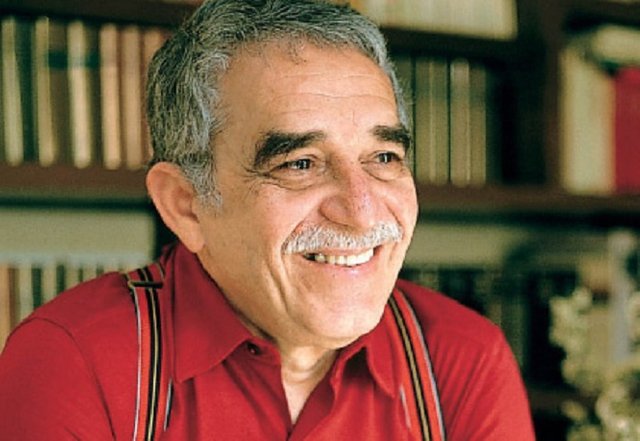Gabriel Garcia Marquez and his hundred years of loneliness

Gabriel Garcia Marquez was born March 6, 1927 in Aracataka, Colombia, known as the Caribbean banana port, but spent most of his life in Europe and Mexico, where he remained until his death. His father is a pharmacist. In his early childhood he was raised by his grandfather and grandmother, which significantly influenced the formation of his worldview. His political and ideological views and perceptions are mainly based on the stories told by his grandfather - the colonel who is a skilled goldsmith. Instead of fairy tales, Marquez is buried with military stories from the Civil War. His grandfather is free, liberal. His grandmother, on the other hand, tells him stories of spirits, superstitions, omens and supernatural phenomena. When he is 8, his grandfather dies and he is taken to live with his parents. For him in the beginning they are strangers. In the face where he begins to study, writes humorous poems and draws cartoons. He gets the nickname "The Old Man" from his classmates because he is too serious and has no athletic figure. He graduated from school in 1946, then enrolled in Columbia University in Bogota, but his heart attracted him to journalism. He stops going to lectures, begins to smoke a lot, and moves into a circle of literary artists, journalists and socialists. One day Franz Kafka's book "Metamorphoses" is in his hands. It changes his life forever.
In 1950 he finally broke with law and devoted himself to literature. He never completed his higher education. García Marquez began his career as a reporter in the Colombian daily El Espectador. His first major work is "Relato de un naufrago" ("A story of a shipwreck"). She went out to strangers in 1955 and described the story of a real shipwreck. The story is as follows: In 1955, the Kalda warship sank with the crew, only Luis Alejandro Velasko survives, who survives 10 days on the high seas. Upon his return to the land, he told journalists that the wrecked warship had been smuggling the knowledge and the government's patronage. As a result, Velasco was fired, and Garcia Marquez was sent as a foreign correspondent in Rome. His return to Colombia is risky and he begins to travel across Europe - Paris, Barcelona, then to other parts of the world - Caracas, New York. Gabriel Garcia Marquez meets with Mercedes Barcha while she is in college, but both decide to finish before they get married. After he leaves for Europe, she is waiting for him to return. They married in 1958. Their first son, Rodrigo Garcia, the film director, was born next year. Three years later, in Mexico, their second son Gonzalo Garcia, now a graphic designer, was born. García Marquez's global fame comes with the publication of the book "Hundred Years of Solitude" in 1967. While writing the book for 18 months, he sells his car, takes food on credit, stakes property, and smokes 6 cans of cigarettes a day. His tireless work was crowned with great success, the book was received with great enthusiasm and praise from criticism and translated into foreign languages. After his successful financial success, he left his family again for Europe and settled in Barcelona, Spain, where he spent seven years.
Often in works by García Marquez there are both artistic and documentary elements. The brightest examples of this are the novel "The Chronicle of a Predicted Death", the novel "Love during Cholera" (1985, the memories of the grandmother and grandfather of the author) and others. García Marquez's most famous novel, "Hundred Years of Solitude", was sold in over ten million copies. He portrays life in the mythical South American village of Macondo (which also appears in other writings of the author and means a banana banana banana). For him, he received the Romulo Gallegos Award in 1972. In 1982, Garcia Marquez was awarded the Nobel Prize for Literature for Complete Creativity. García Marquez is known for his friendship with Cuban leader Fidel Castro, often expressing sympathy with some Latin American revolutionary groups, especially in the 1960s and 1970s. However, he is critical of the situation in his own country and never supports publicly partisan groups there.
You got a 11.67% upvote from @postpromoter courtesy of @daydreaming!
Want to promote your posts too? Check out the Steem Bot Tracker website for more info. If you would like to support the development of @postpromoter and the bot tracker please vote for @yabapmatt for witness!
Great writing really appreciate your work.
like it and upvoted!